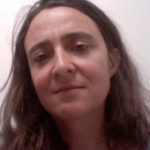University
of Lille, SHS

The University of Lille is a multidisciplinary University at the heart of Northern Europe into the Hauts-de-France Region’s. In the University of Lille-SHS there are 67,000 students and 66 research teams. The University of Lille is the second’s largest university in France. Since 2016, it has developed a special program to welcome asylum seekers and refugees offering a special course in French, a room in the campus and many cultural and social activities with other students.
The Research Team in Communication Studies “GERIICO” is specialized in the field of cultural mediations in the public spheres and arenas. The research team works on cultural practices and productions and on the circulations, disseminations, and appropriations of mediatized cultural productions. It also develops semio-pragmatic approach of technologies of communication and social media. Among the main activities, the team organizes a Teaching program (Bachelor and Master in Social Sciences, with speciality in media, art, society/culture and communication) and leads several research programs on media reception and consumption.
RESEARCH TEAM
Emilie da Lage is Maître De Conférences in Communication Studies at the University of Lille. She is the coordinator of the research project “Migration and creativity” and is part of the “Non lieux de l’exil” team. Her research interests are world music and cultural globalization, socio-economy of Music Industries, cultural experiences in urban public space, heritage policies and cultural mediation. She also works on different projects concerning innovative ways to disseminate research results (e.g. local radio, exhibitions).
Relevant publications
Da Lage, E. (2018). En quête d’Asile. In: Bachir-Loopuyt, T. and Damon, A., (eds.). Une pluralité audible monde de musiques dans la ville. Rennes: PUFR.
Da Lage, E. (2016). La musique et le temps. In: Lequette, S. and Levergos, D. (eds.) Décamper! (pp. 120-126). Paris: La Découverte.
Da Lage, E. and Debruyne, F. (2015). Les refrains de la mondialisation, Réseaux N°192. Paris: La découverte.
Role in the research project
– writing for the Web Platform and posting commented sounds, video clips;
– context analysis, specially oriented toward the way the “cultural worlds” are dealing with the so called “migration crisis” in the north of France and the specific problematics of the territory (e.g. Calais and the British border, the land scape, the long-term engagement of the local volunteers and the specific organization);
– linking with other research networks on migration such as “Les Non lieux de l’exil”;
– action- research;
– developing a sound/music exhibition showing the mediascapes of the migrants of Calais.




